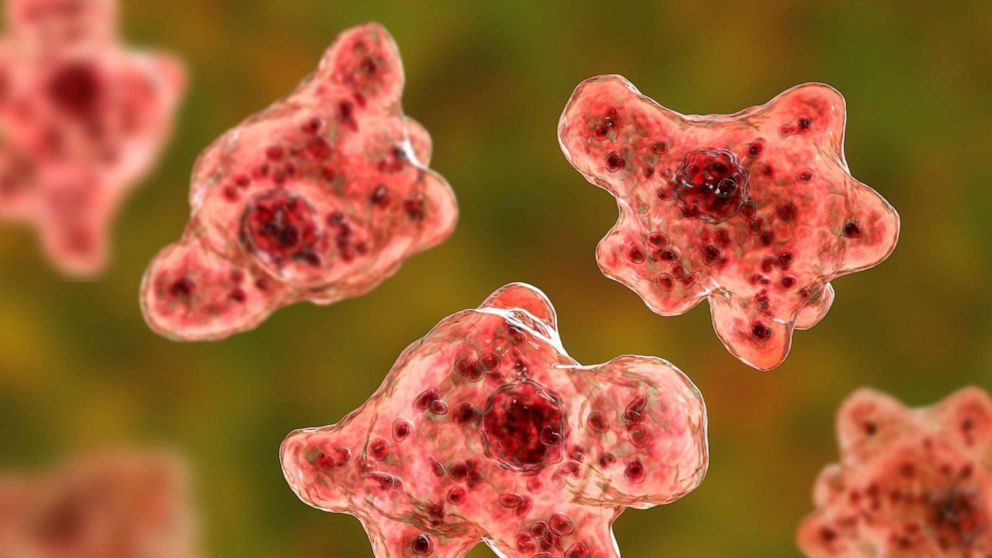Officials Confirm Rare Brain-Eating Amoeba Causes Fatality in Georgia Resident
In a tragic turn of events, health officials in Georgia have confirmed that a rare brain-eating amoeba caused the death of a resident. This incident has raised concerns and highlighted the need for public awareness about this deadly organism.
The brain-eating amoeba, scientifically known as Naegleria fowleri, is a single-celled organism commonly found in warm freshwater environments such as lakes, hot springs, and poorly maintained swimming pools. While infections caused by this amoeba are extremely rare, they can be fatal.
The Georgia resident, whose identity has not been disclosed, is believed to have contracted the amoeba while swimming in a lake. The individual later developed symptoms such as severe headache, fever, nausea, and vomiting. Unfortunately, despite receiving prompt medical attention, the infection rapidly progressed, leading to the individual’s untimely demise.
Naegleria fowleri enters the body through the nose and then travels to the brain, where it causes a rare but devastating infection called primary amebic meningoencephalitis (PAM). Once in the brain, the amoeba destroys brain tissue, leading to inflammation and swelling. PAM is almost always fatal, with only a handful of survivors reported worldwide.
It is important to note that Naegleria fowleri cannot be contracted by drinking contaminated water or by being in contact with an infected person. The only known mode of transmission is through water entering the nose. Therefore, activities such as swimming, diving, or engaging in water sports in warm freshwater bodies increase the risk of exposure to this amoeba.
To prevent infection, health officials recommend taking certain precautions. Firstly, it is essential to avoid water-related activities in warm freshwater bodies during periods of high water temperature or low water levels. Additionally, individuals should refrain from diving or jumping into bodies of water that are not properly maintained or have stagnant water. Wearing nose clips or keeping the head above water can also reduce the risk of water entering the nasal passages.
While Naegleria fowleri infections are rare, it is crucial for healthcare providers to be aware of the symptoms and promptly diagnose and treat any suspected cases. Early recognition and intervention can significantly improve the chances of survival.
In response to this tragic incident, local health authorities have initiated public awareness campaigns to educate residents about the risks associated with Naegleria fowleri. These efforts aim to inform the public about preventive measures and raise awareness about the importance of seeking medical attention if symptoms occur after water-related activities.
It is important to remember that while this incident is undoubtedly distressing, the risk of contracting Naegleria fowleri remains extremely low. By following the recommended precautions and staying informed, individuals can continue to enjoy water-related activities while minimizing the risk of infection.
In conclusion, the confirmation of a rare brain-eating amoeba causing a fatality in a Georgia resident serves as a somber reminder of the potential dangers lurking in warm freshwater environments. Public awareness, preventive measures, and early medical intervention are crucial in combating this deadly organism. By staying informed and taking necessary precautions, individuals can continue to enjoy water-related activities while safeguarding their health.



